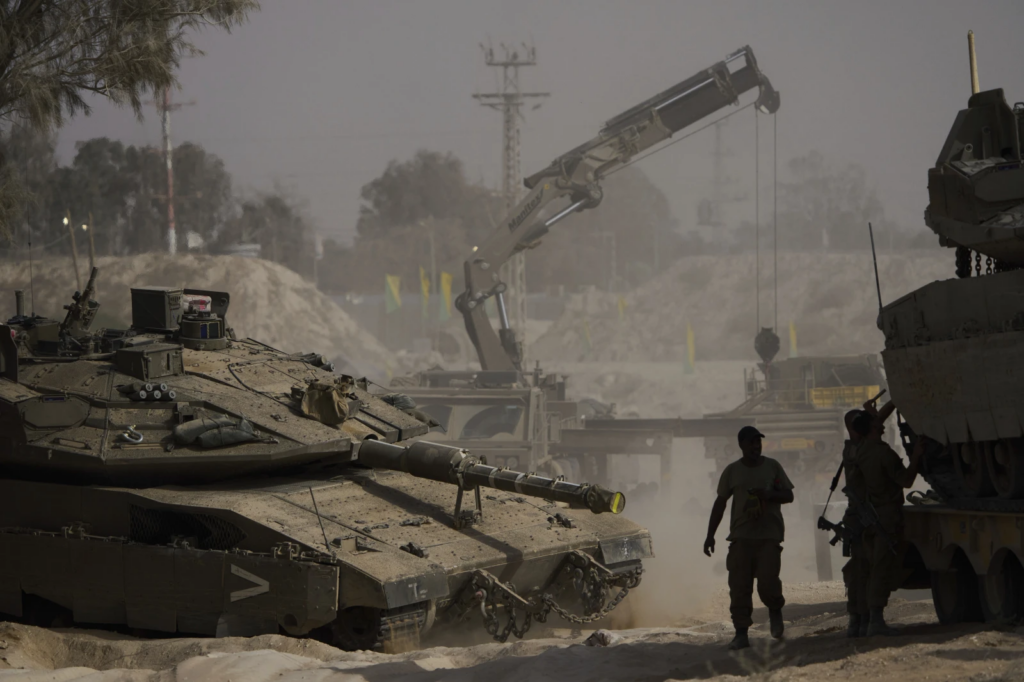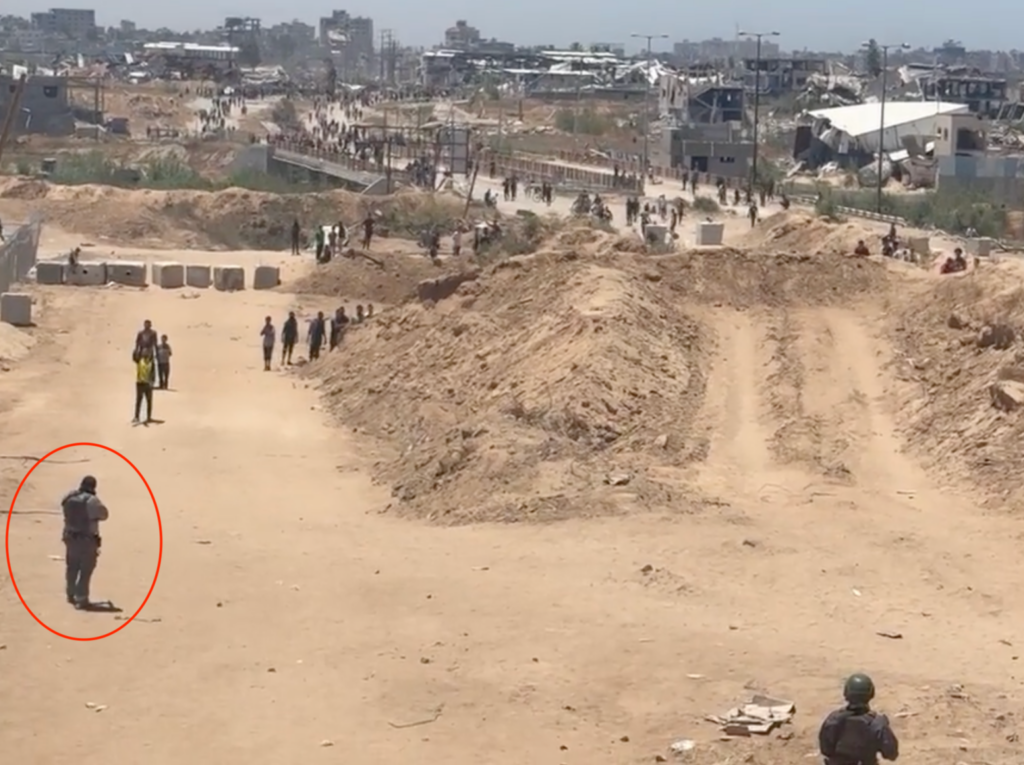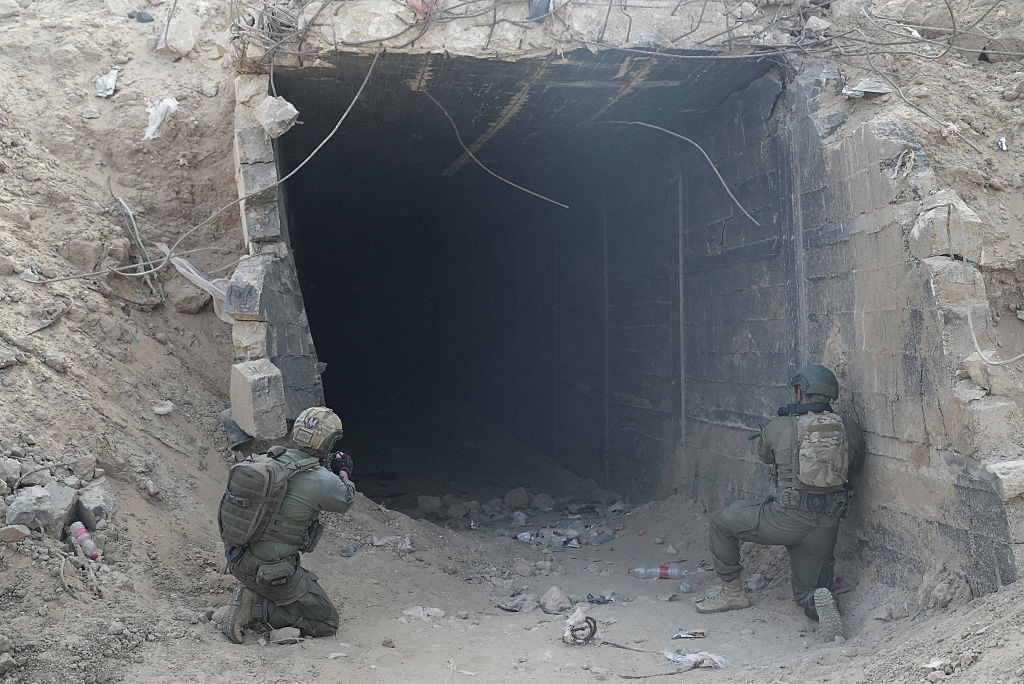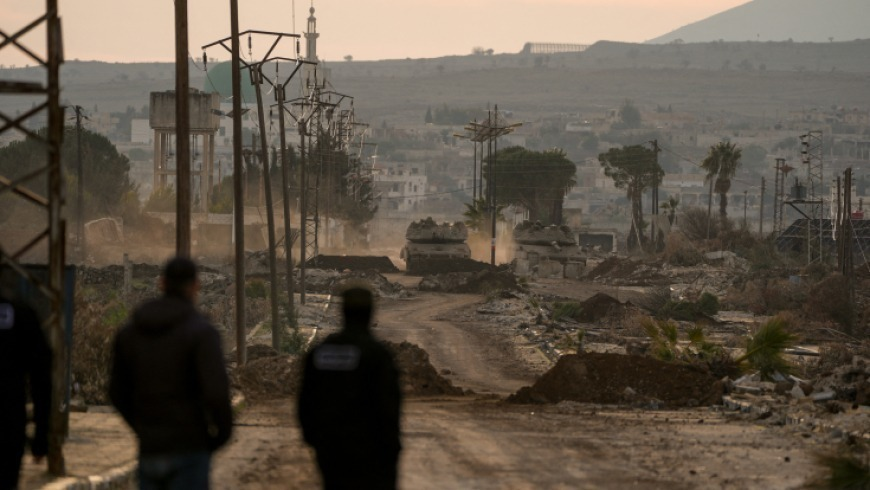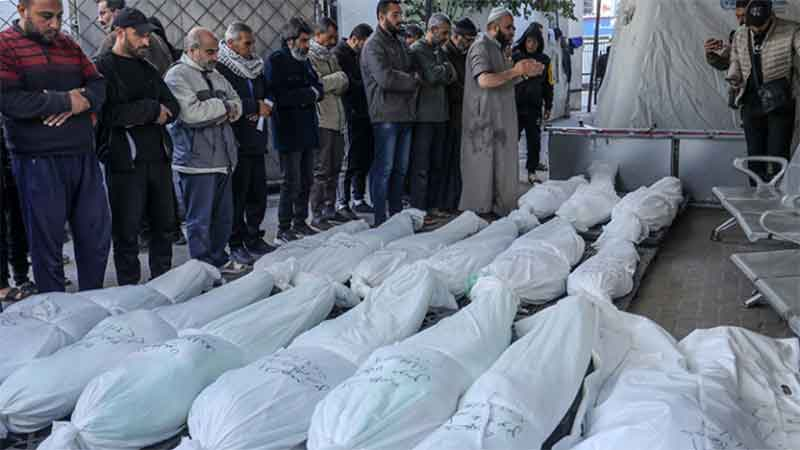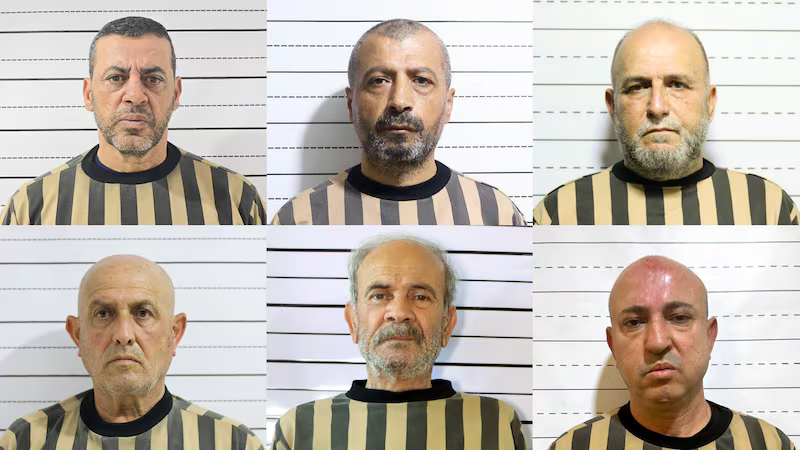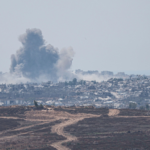
Britain’s obedient defence correspondents are refusing to report a story of clear public interest in the middle of a genocide.
Britain’s mainstream media have not carried out a single investigation into the extent, impact or legal status of the more than 500 surveillance flights over Gaza that the RAF has carried out since December 2023.
The Ministry of Defence continues to insist that the operations, carried out by Shadow R1 aircraft based at RAF Akrotiri in Cyprus, are designed purely to assist with the discovery of Israeli hostages taken by Hamas on 7 October 2023.
It appears that Britain’s obedient defence correspondents have no appetite to challenge this or even to raise the slightest concern about the legal or ethical implications of providing intelligence support to Israel in the middle of a genocide.
Yet thanks to dogged work by campaigners, independent journalists and pro-Palestine MPs, we know both that the flights are continuing to operate (as they did even throughout the ceasefire) and that spikes in the number of flights have coincided with especially deadly Israeli attacks on Gaza.
The lack of curiosity on the part of mainstream media is perhaps not surprising but it is deeply troubling.
What spy flights?
Action on Armed Violence, who have investigated the flights, point to the opacity of the intelligence and criticise the government for its repeated refusal to talk about how it has been used and who it has been shared with: “Once shared with Israel or the United States, Britain loses control of how the data is used.”
Israel’s incendiary attack on Iran on 13 June has led to a flurry of stories mentioning RAF Akrotiri as a potential target for Iranian retaliation given its status as the UK base for what the BBC admitted is a “rapid deployment force available for contingencies in the Middle East”.
The defacing of two military planes at RAF Brize Norton by members of Palestine Action – that has subsequently led to the unprecedented decision by the Home Secretary to proscribe the group – led to many mainstream news outlets briefly citing the activists’ claim that the RAF was involved in what most stories referred to as “military operations in the Middle East”.
Unusually, the BBC’s account did at least mention the activists’ claim that Britain was continuing to “fly spy planes over Gaza”.
However, neither these stories nor indeed any of the ones since the flights started operating in December 2023 have actually investigated these claims.
Of the 1,359 pieces in UK-based media between 2/12/23 and 24/6/25 referencing “Akrotiri”, none in the mainstream media have focused specifically on the spy flights.
This is in direct contravention of a significant public interest in covering the flights as an ongoing controversy. Even Google’s AI overview acknowledges this. Based on search results for “surveillance flights, Gaza AND Cyprus”, Google’s conclusion is that “it appears there has been considerable discussion and concern surrounding British surveillance flights operating out of RAF Akrotiri, a military base in Cyprus, and flying over Gaza”.
Despite the fact that independent sources like The National, Declassified UK and Middle East Eye have repeatedly drawn attention to the flights and the implications of supplying intelligence to Israeli forces, mainstream news media have refused to amplify this “discussion and concern”.
The vast majority of stories that reference Akrotiri are instead in relation to its role as a base for attacks on Houthi rebels in Yemen in January 2024 (“Brits hits Houthis” was the headline in the Sun), the repatriation of UK citizens from Lebanon in summer 2024 and the surveillance of the base by an alleged Iranian spy in June 2025.
Hard news
This lack of coverage is certainly not because the flights exist only in the imaginations of Declassified UK journalists or pro-Palestine activists. When pressed, the Ministry of Defence admits they are taking place.
For example, on 2 December 2023, the BBC acknowledged the launch of surveillance flights to Gaza in order to “search for Hamas hostage locations”, still the official MoD narrative. The following October, the BBC reported that the UK was willing to hand over “Gaza intelligence” to the International Criminal Court, if requested, as part of the ICC’s investigation into alleged war crimes carried out by Israel.
Other than that, however, the BBC has remained silent on the nature of this “intelligence” and whether the flights may make the UK complicit with war crimes if found to be the case by the ICC. It has utterly failed to follow up the story. Search the BBC’s “Ministry of Defence” thread and you will find it bare.
When challenged about this by Declassified, the BBC’s director of news content Richard Burgess said: “I don’t think we should overplay the UK’s contribution to what’s happening in Israel”.
The Guardian has published three comment pieces – by Jeremy Corbyn, Paul Rogers and Owen Jones and a joint signatory letter – all of which have made brief reference to the spy flights.
In hard news, however, the Guardian has barely acknowledged the existence of the flights, confined to one line in a Patrick Wintour story on Foreign Office staff being told to resign after challenging UK policy on Gaza, as well as a mention of “500 surveillance flights” in response to the activities of Palestine Action.
The i paper ran a single story in October 2024 stating that “British military aircraft have reportedly flown hundreds of reconnaissance missions over Gaza in the past year to gather intelligence for Israel” (my emphasis) but, like so many other outlets, have not returned in any meaningful way to the topic since.
Deafening silence
Despite official acknowledgement that the flights continue to take place and despite multiple questions raised in parliament by concerned MPs like Jeremy Corbyn, Shockat Adam, Scott Arthur, Brendan O’Hara and Calvin Bailey, the silence on the intelligence-gathering nature of the spy flights has been deafening.
It’s hard to reconcile this silence with the energy with which mainstream media have investigated Russian spy planes flying over Ukraine and other military manoeuvres related to Putin’s invasion.
It is all the more hypocritical considering their claim to be watchdogs scrutinising government actions. Only recently, Katharine Viner, the editor of the Guardian, wrote about her paper’s record in “scrutinising power with complete independence for decades”.
In reality, it’s precisely the opposite. Leading news organisations are amplifying MoD talking points and Foreign Office priorities but then remaining quiet and toeing the line when it comes to identifying potential military support for Israel’s genocide.
This is similar to the total lack of critical voices in their reporting of the Defence Review that was announced earlier in June by Keir Starmer.
Out of 993 stories on the “defence review” in UK media on 2 June, a tiny handful took the time even to acknowledge the existence of significant public opposition to increases in defence spending, particularly at the expense of cuts to public services.
The vast majority of published criticism of Labour’s defence plans come from the Tories or military voices arguing that “this is too little, too late” or that it isn’t clear where the money will come from. There is, apparently, no space for hard news content that investigates whether increased defence spending is either effective nor necessary.
Meanwhile, the mainstream media’s continuing silence on RAF spy flights over Gaza is a flagrant abdication of their stated responsibility to ask tough questions of military planners.
Far from holding power to account, mainstream media – through their silence and meekness – are allowing the government to get away with murder in Gaza.
